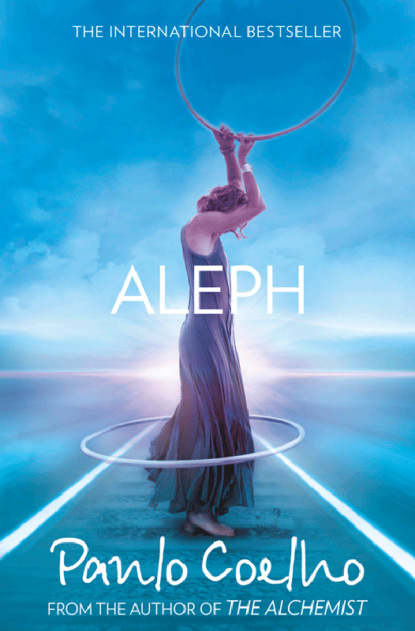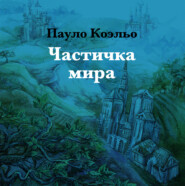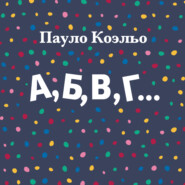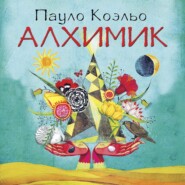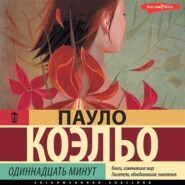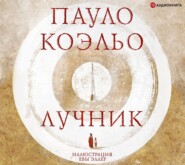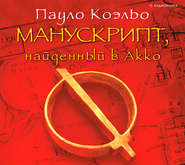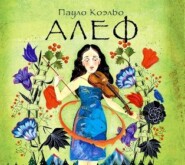По всем вопросам обращайтесь на: info@litportal.ru
(©) 2003-2024.
✖
Aleph
Автор
Год написания книги
2018
Настройки чтения
Размер шрифта
Высота строк
Поля
Everyone seems suddenly very preoccupied with their plates, cutlery and glasses, pretending to be concentrating on the food, but longing to know the rest of her story. Hilal speaks as if what she was talking about were the most natural thing in the world.
‘It was a neighbour, whom everyone thought of as gentle and helpful, a good man to have around in an emergency. He was married and had two daughters my age. Whenever I went to his house to play with them, he would sit me on his knee and tell me nice stories. While he was doing this, however, his hand would be wandering all over my body, and at first I took this as a sign of affection. As time passed, though, he began touching me between my legs and asking me to touch his penis, things like that.’
She looks at the other five women around the table and says:
‘It’s not at all uncommon, unfortunately. Wouldn’t you agree?’
No one answers, but my instinct tells me that at least one or two would have experienced something similar.
‘Anyway, that wasn’t the only problem. The worst thing was that I started to enjoy it, even though I knew it was wrong. Then, one day, I decided not to go back there, despite my parents telling me that I ought to play with our neighbour’s daughters more. At the time I was learning the violin and so I told them that I wasn’t getting on well in my classes and needed to practise more. I started playing compulsively, desperately.’
No one moves. No one knows quite what to say.
‘And because I carried all that guilt around inside me, because victims always end up considering themselves to be the culprits, I decided to keep punishing myself. So, in my relationships with men, I’ve always sought suffering, conflict and despair.’
She looks straight at me, and the whole table notices.
‘But that’s going to change now, isn’t that right?’
Having been in charge of the situation up to that point, I suddenly lose control. All I can do is mutter ‘Yes, well, I hope so’ and quickly steer the conversation round to the beautiful building that houses the Brazilian embassy in Russia.
When we leave, I ask where Hilal is staying and check with my industrialist friend if he would mind taking her home before dropping me off at my hotel. He agrees.
‘Thank you for the violin music, and thank you for sharing your story with a group of perfect strangers. Now, each morning, when your mind is still empty, devote a little time to the Divine. The air contains a cosmic force for which every culture has a different name, but that doesn’t matter. The important thing is to do what I’m telling you now. Inhale deeply and ask for all the blessings in the air to enter your body and fill every cell. Then exhale slowly, projecting happiness and peace around you. Repeat this ten times. You’ll be helping to heal yourself and contributing to healing the world as well.’
‘What do you mean?’
‘Nothing. Just do the exercise. You’ll gradually eradicate your negative feelings about love. Don’t let yourself be destroyed by a force that was placed in our hearts in order to make everything better. Breathe in, inhaling whatever exists in the heavens and on earth. Breathe out beauty and fecundity. Believe me, it will work.’
‘I didn’t come here to learn an exercise I could find in any book on yoga,’ says Hilal angrily.
Outside, Moscow is parading past us. What I would really like is to wander the streets and have a coffee somewhere, but it’s been a long day and I have to get up early tomorrow for a series of engagements.
‘So I can come with you, then?’
Can she talk of nothing else? I met her less than 24 hours ago – if you can call such a strange encounter a meeting. My friend laughs. I try to remain serious.
‘Look, I took you to the ambassador’s supper. Isn’t that enough? I’m not making this journey to promote my books,’ I hesitate. ‘I’m doing it for personal reasons.’
‘Yes, I know.’
Something about the way she says this makes me feel that she really does know, but I choose not to trust my instincts.
‘I’ve made many men suffer and I’ve suffered greatly too,’ Hilal goes on. ‘The light of love flows out of my soul, but it can go nowhere because it’s blocked by pain. I could inhale and exhale every morning for the rest of my life, but that wouldn’t solve anything. I’ve tried to express my love through the violin, but that’s not enough either. I know that you can heal me and that I can heal what you’re feeling. I’ve lit a fire on the mountain opposite yours, you can count on me.’
Why was she saying this?
‘What hurts us is what heals us,’ she said. ‘Life has been very hard on me, but, at the same time, it has taught me a great deal. You can’t see it, but my body is covered in open wounds that are constantly bleeding. I wake each morning wanting to die before the day is out, but I continue to live, suffering and fighting, fighting and suffering, clinging on to the certainty that it will all end one day. Please, don’t leave me alone here. This journey is my salvation.’
My friend stops the car, puts his hand in his pocket and hands Hilal a wad of notes.
‘He doesn’t own the train,’ he says. ‘Take this; it should be more than enough for a second-class ticket and three meals a day.’
Then turning to me, he says:
‘You know the pain I’m going through at the moment. The woman I love has died, and I, too, could inhale and exhale for the rest of my life, but I’m never going to be truly happy again. My wounds are open and bleeding too. I understand exactly what this young woman is saying. I know you’re making this journey for entirely personal reasons, but don’t leave her alone like this. If you believe in the words you write, allow the people around you to grow with you.’
‘OK, fine,’ I say to her. ‘He’s right, I don’t own the train, but I just want you to know that I’m going to be surrounded by people most of the time, so there won’t be many opportunities to talk.’
My friend starts the engine again and drives for another fifteen minutes in silence. We reach a leafy square. She tells him where to park, jumps out and says goodbye. I get out of the car and accompany her to the door of the house where she’s staying with friends.
She kisses me briefly on the lips.
‘Your friend is mistaken, but if I were to look too happy, he might take his money back,’ she says, smiling. ‘My suffering is nothing compared to his. Besides, I’ve never been as happy as I am now, because I followed the signs, I was patient, and I know that this is going to change everything.’
She turns and goes into the building.
Only then, as I walk back to the car, looking at my friend who has got out to smoke a cigarette and is smiling because he saw that quick kiss, only then, as I listen to the wind in the trees restored to life by the force of the Spring, am I aware that I’m in a city I don’t know very well, but which I love, only then, as I feel for the pack of cigarettes in my pocket, thinking that tomorrow I’ll be setting off on a long-dreamed-of adventure, only then …
… only then do I remember the warning given by the clairvoyant I met at Véronique’s house. He’d said something about Turkey, but quite what I can’t remember.
9,288
The Trans-Siberian railway is one of the longest railways in the world. You can start your journey at any station in Europe, but the Russian section is 9,288 kilometres long, connecting hundreds of small and large cities, traversing 76 per cent of the country and passing through seven different time zones. When I enter the train station in Moscow, at eleven o’clock at night, day has already dawned in Vladivostok, our final destination.
Until the end of the nineteenth century, few travellers ventured into Siberia, which holds the record for the lowest temperature ever registered in a permanently inhabited place: –72.2°C in the town of Oymyakon. The rivers that linked the region to the rest of the world used to be the main means of transport, but they were frozen for eight months of the year. The population of Central Asia lived in almost complete isolation, although it was the source of most of the then Russian Empire’s natural wealth. For strategic and political reasons, Alexander II approved the construction of the railway, the cost of which was exceeded only by Imperial Russia’s military budget during the whole of the First World War.
During the civil war that erupted immediately after the Communist Revolution of 1917, the railway became the focus of fighting. Forces loyal to the deposed emperor, notably the Czech Legion, used armoured carriages, which acted as tanks on rails, and were thus able to repel attacks by the Red Army with relative ease, as long as they were kept supplied with munitions and provisions from the East. That was when the saboteurs were sent into action, blowing up bridges and cutting communications. The pro-Imperial forces were driven to the outer reaches of the Russian continent and many crossed Alaska and into Canada, from where they dispersed to other countries.
When I entered the station at Moscow, the price of a ticket from Europe to the Pacific Ocean in a compartment shared with three other people could cost anything between 30 and 60 euros.
My first photo was of the departures board showing our train due to leave at 23.15! My heart was beating fast, as if I were a child again, watching my toy train chugging round the room and letting my mind travel to distant places, as distant as the one in which I found myself now.
My conversation with J. in Saint Martin just over three months before felt as if it had happened in a previous incarnation. What idiotic questions I had asked! What was the meaning of life? Why can I make no progress? Why is the spiritual world moving further and further away? The answer couldn’t have been simpler: because I wasn’t really living!
How good it was to go back to being a child, feeling my blood flowing in my veins and my eyes shining, thrilling to the sight of the crowded platform, the smell of oil and food, the squeal of brakes as a train came into the station, the shrill sounds of luggage vans and whistles.
To live is to experience things, not sit around pondering the meaning of life. Obviously, not everyone needs to cross Asia or follow the Road to Santiago. I knew an abbot in Austria, who rarely left his monastery in Melk, and yet he understood the world far better than many travellers I have met. I have a friend who experienced great spiritual revelations just from watching his children sleeping. When my wife starts work on a new painting, she enters a kind of trance and speaks to her guardian angel.
But I am a born pilgrim. Even when I’m feeling really lazy or I’m missing home, I need take only one step to be carried away by the excitement of the journey. In Yaroslavl station, making my way over to platform 5, I realise that I will never reach my goal by staying in the same place all the time. I can only speak to my soul when the two of us are off exploring deserts or cities or mountains or roads.
We are in the last carriage, which will be coupled and decoupled at various stations along the way. I can’t see the engine from where I am, only the giant steel snake of the train and various other passengers – Mongols, Tatars, Russians, Chinese – some sitting on huge trunks, and all waiting for the doors to open. People come over to talk to me, but I move away. I don’t want to think about anything else, apart from the fact that I’m here, now, ready for yet another departure, a new challenge.
This moment of childish ecstasy must have lasted at most five minutes, but I took in every detail, every sound, every smell. I won’t be able to remember anything afterwards, but that doesn’t matter: time is not a cassette tape that can be wound and rewound.
Don’t think about what you’ll tell people afterwards. The time is here and now. Make the most of it.
I approach the rest of the group and realise that they’re all as excited as I am. I’m introduced to the translator who will be travelling with me. His name is Yao. He was born in China, but went to Brazil as a refugee during the civil war in his country. He then studied in Japan and is now a retired language teacher from the University of Moscow. He must be about seventy. He is tall and the only one in the group who is impeccably dressed in suit and tie.





